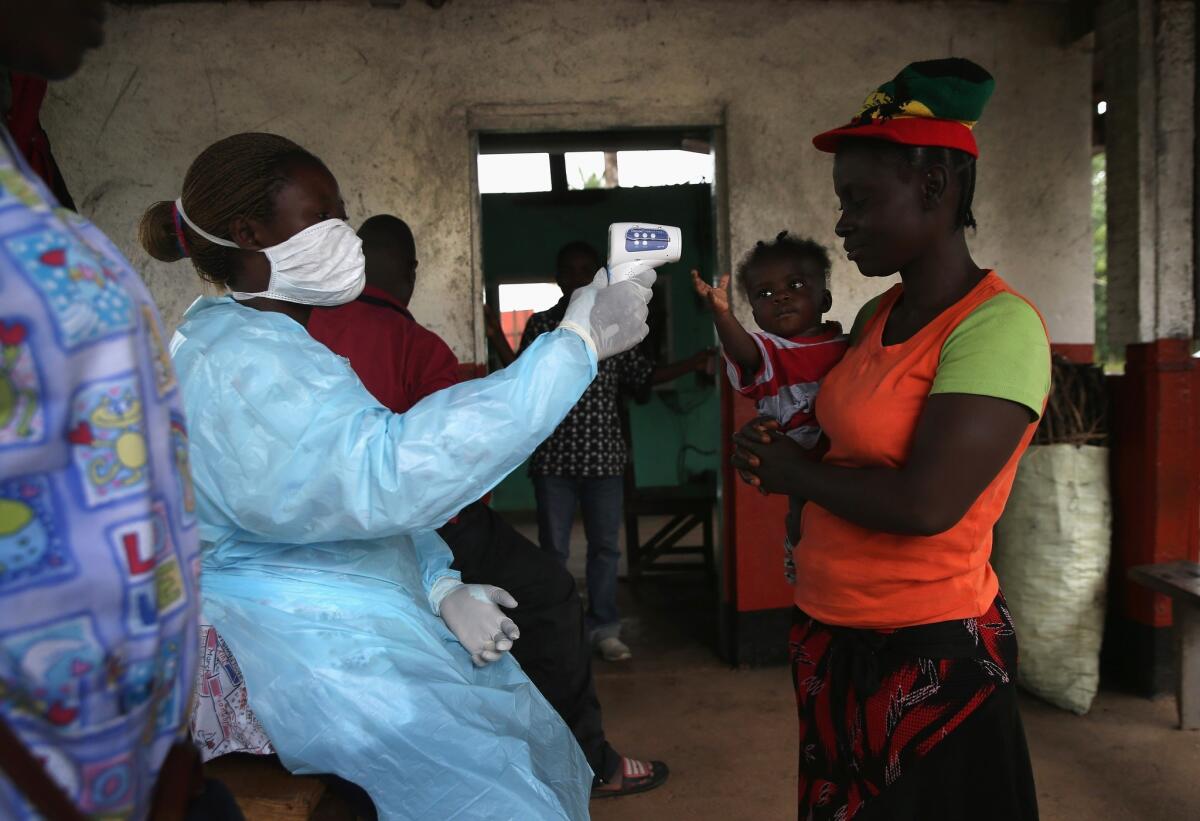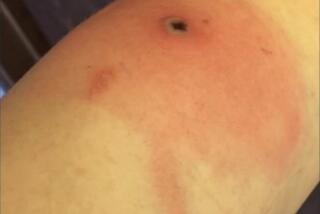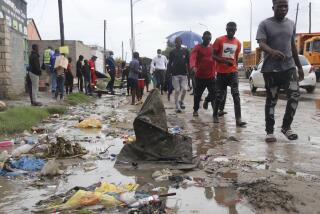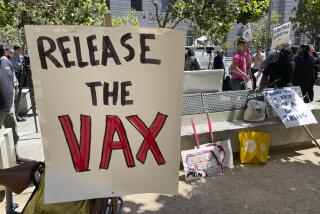Liberian doctor who got experimental drug dies of Ebola

A Liberian doctor who received one of the last known doses of an experimental Ebola drug has died, officials said Monday. He was one of only six people who have been given ZMapp, including two Americans who survived after receiving follow-up medical care in the United States.
Ebola has left more than 1,400 people dead across West Africa, underscoring the urgency for developing potential ways to stop and treat the disease.
Health experts caution that since ZMapp was never tested in humans, it is unclear whether it works. The small supply is now said to be exhausted and it is expected to be months before more can be produced.
Dr. Abraham Borbor, the deputy chief medical doctor at Liberia’s largest hospital, had received ZMapp, along with two other Liberians. He “was showing signs of improvement but yesterday he took a turn for the worse,” and died Sunday, Information Minister Lewis Brown said.
There was no update provided Monday on the other two Liberians who received the drug.
A Spanish missionary priest who received ZMapp died after he left Liberia.
Ebola can cause a grisly death with bleeding from the eyes, mouth and ears. The virus can only be transmitted through direct contact with the bodily fluids of the sick or from touching victims’ bodies, leaving doctors and other healthcare workers most vulnerable to contracting it.
International relief efforts have included shipments of gloves, gowns, face masks and other protective equipment, although it’s not clear how many have reached health workers struggling to contain the epidemic in West Africa, where even such basics as sterile fluids can be in short supply.
But just getting enough gear isn’t the whole story: Health workers can infect themselves while taking off contaminated equipment if they don’t do it properly, a trio of infectious disease experts wrote Monday in Annals of Internal Medicine.
“The physical exhaustion and emotional fatigue that come with caring for patients infected with Ebola may further increase the chance of an inadvertent exposure to bodily fluids on the outside of the” personal protective equipment, wrote Dr. William A. Fisher II of the University of North Carolina, Chapel Hill, along with Drs. Trish Perl and Noreen Hynes of Johns Hopkins University.
“In addition, the impulse to wipe away sweat in the ever-present hot, humid environment” after taking off some gear, and before washing up, could be enough, they added.
Meanwhile, the family of 29-year-old William Pooley, the first British citizen confirmed to be infected with Ebola, said he is receiving excellent care at an isolation ward in London’s Royal Free Hospital after being evacuated from the capital of Sierra Leone.
Pooley, a volunteer nurse, was flown back to Britain from Sierra Leone where he was working at an Ebola treatment center.
More to Read
Start your day right
Sign up for Essential California for news, features and recommendations from the L.A. Times and beyond in your inbox six days a week.
You may occasionally receive promotional content from the Los Angeles Times.






